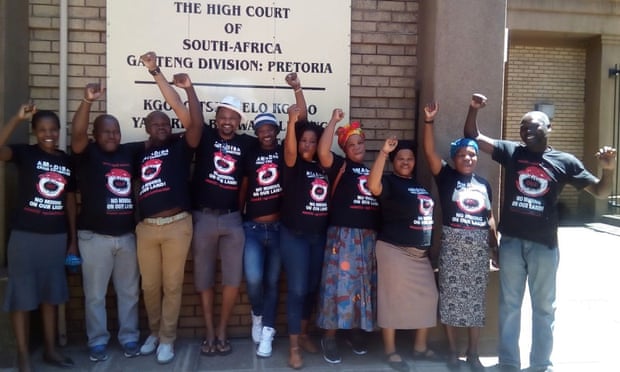- 2018 saw two landmark court judgements preventing mining operations on community land in South Africa.
- The two victories are significant for environmental activists, land owning communities and the South African people at large.
2018 was significant for environmental activists, land owning communities and the South African people at large. Two landmark court cases laid down judgements preventing mining operations on land areas in the Mabola Protected Environment in Mpumalanga and Xolobeni, a community in Pondoland.
In 2015, the Minister of Mineral Resources granted Atha-Africa Ventures (Pty) Ltd, an Indian-owned mining company, the right to mine for coal in the Mabola area in Mpumalanga that was declared a Protected Environment in January 2014. The Centre for Environmental Rights, on behalf of a group of eight civil society and community organisations from across South Africa, challenged this decision on the basis that it was illegal and dangerous, and would compromise the community, region and country’s access to precious water resources.
The Mabola Protected Environment in Mpumalanga falls within the Enkangala Drakensberg Strategic Water Source Area, vital for producing water that is consumed by local communities. The area is composed mostly of wetlands, pans and grassland, and is a source of four major rivers – the Tugela, the Vaal, the Usutu and the Pongola – that provide water to a huge number of downstream water users. These users will all be affected if the sources of those rivers are compromised.
In October 2018, more than 4 years after the declaration of the Mabola Protected Environment, the MEC for Environment in Mpumalanga, Vusi Shongwe tried to publish a notice of intention to exclude the properties that make up the proposed coal mining area from the Mabola Protected Environment. After hearing the argument, Judge Davis dismissed the application and ordered the state to pay the costs.
Similiarly environmental activists won a landmark legal victory in November 2018 after the high court ordered the government to get prior community consent before granting mining rights. The case centres on the plight of the people of Xolobeni, a community in Pondoland who have been involved in a protracted and sometimes violent struggle against a proposed titanium mine.
The Department of Mineral Resources offered a mining concession to the Australian company Transworld Energy and Mineral Resources to mine in the area without the prior informed consent of local residents. The proposed project aimed to generate annual revenues of £140m for the 25-year life of the opencast pit, which would have produced zircon, rutile and titanium.
The local residents say the mining operations will result in the dunes being cleared which will destroy their homes, their culture and the ecology of the Wild Coast region. They formed the Amadiba Crisis Committee, which staged protests and launched a legal challenge. Their fight has not been without sacrifice. Their previous chair, Bazooka Radebe was murdered on 22 March 2016. His murder remains unsolved.
The victory in both cases makes a strong statement of how local communities and environmental organisations can fight back and win against the States indiscriminate granting of mining licences without a proper consultation process or environmental/social impact studies.
Author: Bryan Groenendaal















